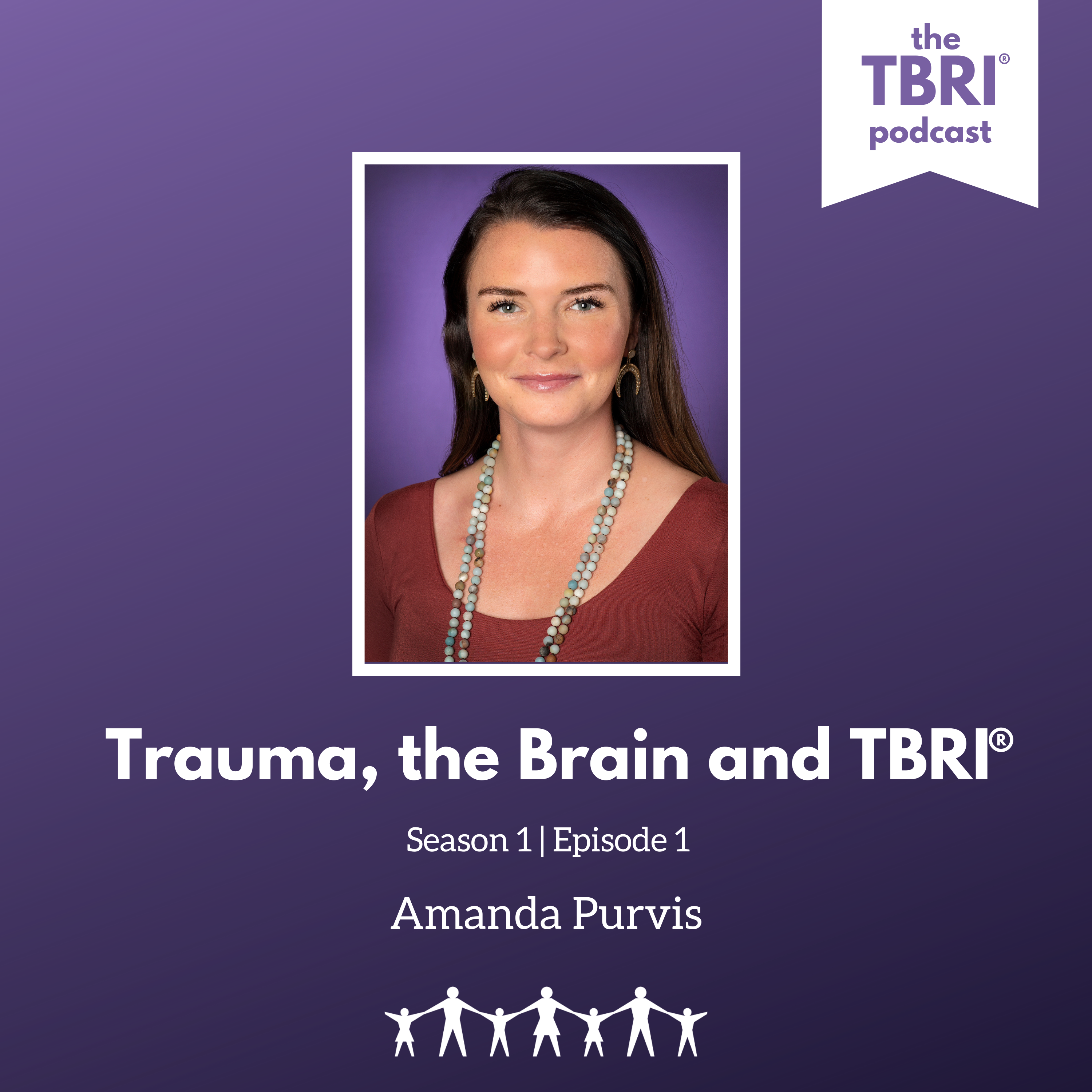We’re so excited to announce the re-launch of our podcast! The TBRI® Podcast features conversations all about Trust-Based Relational Intervention, and we’re kicking off Season 1 with a conversation about Trauma, the Brain and TBRI® with Amanda Purvis.
“When we understand trauma’s impact on the kids we care for, we can intercept that negative belief system from forming and replace it with truth.”
– Amanda Purvis
LISTEN HERE
Show Notes:
Linked References from this Episode:
About our guest:
Amanda Purvis is a Training Specialist with the Karyn Purvis Institute of Child Development (KPICD) at TCU. As training specialist, Amanda’s main focus is instructing professionals working with children who have experienced trauma, in Trust-Based Relational Intervention® (TBRI®). TBRI, a holistic, attachment-based, and trauma-informed intervention designed to meet the complex needs of vulnerable children, offers practical tools for caregivers to help those in their care reach their highest potential.
Amanda earned her Bachelor’s Degree in Social Work from Metropolitan State University in Denver, CO. She began her career working in Child Protective Services as an intake worker. She then transitioned to foster care and post-adoption support, where she spent a decade of her career before beginning her work with the Purvis Institute in December 2017.
Amanda lives in Castle Rock, CO with her husband and five children, and their dog, Hamilton.
About the host:
Sarah Mercado is a Training Specialist with the Karyn Purvis Institute of Child Development (KPICD). As training specialist, Sarah’s main focus is instructing professionals working with children who have experienced trauma, in Trust-Based Relational Intervention® (TBRI®). TBRI®, a holistic, attachment-based, and trauma-informed intervention designed to meet the complex needs of vulnerable children, offers practical tools for caregivers to help those in their care reach their highest potential.
Sarah earned her Bachelor’s Degree from Sweet Briar College in Virginia. She began her career as a direct care staff working with adolescent boys living in a Residential Treatment Center (RTC). After serving in the RTC for several years, she shifted her focus to foster care, where she was Regional Director for a foster and adoption agency.
Sarah spent 20 years serving youth and families within residential and foster care settings as a direct-care worker and trainer before beginning her work with the Purvis Institute in May 2016. Sarah lives near Austin, TX with her husband, AJ, and their two children.

This was very helpful to me to see what effects it has and the outcome
How do I receive a certificate for completion of listening to the podcasts?
Very helpful. I am a visual learner. Is there a way to get this podcast written?
Marisa, thanks so much for your comment. We don’t have transcripts for our podcast at this time, but it’s something we want to provide in the future. We’ll update this post if the transcript becomes available.
Very informative.
This was very helpful to me .
Learning about the 5 Bs when it comes to trauma is a great resource.
The training was very helpful, especially the information of ACEs.
This pod cast was very informative. I now have a new understanding of why and how to address situations pertaining to my boys.
Thank you! As a foster parent and a former teacher refreshing up on this information is so helpful. When you spoke about the cafeteria situation I couldn’t help to think of all the children I’ve know that that pertained to. So happy that awareness and Knowledge is being spread around!
How do I receive my certificate after watching the podcast. Thank you for your time.
Hi, Kelly, we do not issue certificates for listening to our podcast.
It is interesting how neglect can have such a drastic impact on a child concerning trauma, verses abuse…..
Looking at our own history can be difficult but I agree that it can be crucial in parenting
Very helpful in helping understand and working with kids coming into my foster home with trauma.
This is the first i remeber hearing about TBRI
This is the first i have learned about TBRI
Very helpful understanding trauma in our foster children.
This podcast was so informative. I could relate the 5 B’s to each of my foster children. I am very excited to continue this series, so I can be a better parent.
Very helpful!
very informative. The 5 B’s is so helpful to learn especially with foster children. I cant wait to listen to more from this series.
It’s very helpful in understanding Trauma
Very informative. Thankyou
Good information on trauma involving the children
Very helpful and understanding message
This was very informative. The 5 Bs was definitely something worth learning!